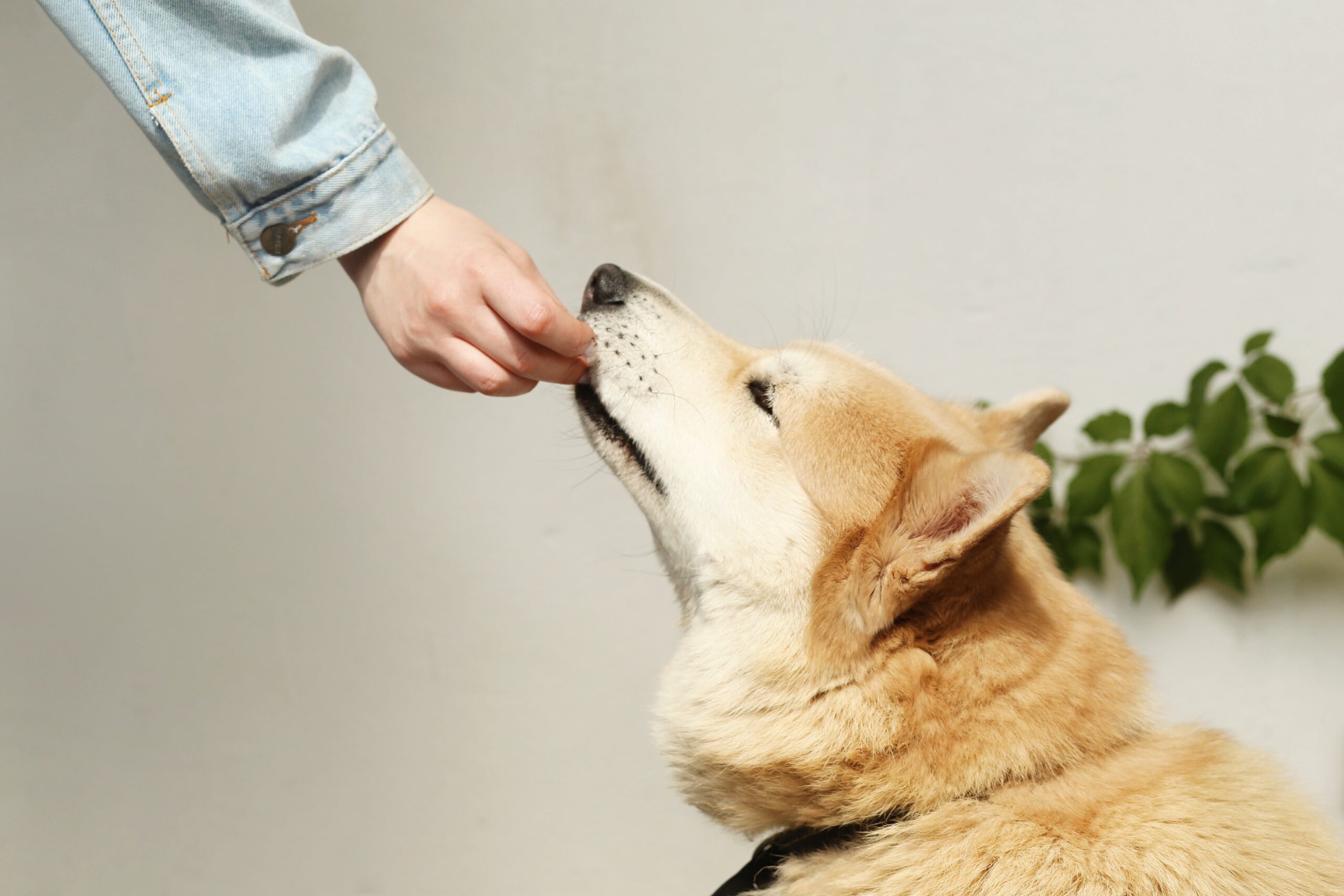Salmon oil for dogs and cats is a wise choice, but do you know how to dose it properly?
You can avoid many side effects with proper dosing, and your pet will remain healthy!
We at Brilliant Salmon Oil recommend 1 ml for every 3 kg (6.6 lb) of your pet’s weight. However, it is essential to emphasize that different health conditions require different dosing.
Let’s dive deeper and discuss everything about proper dosing and top tips to get it right!
Jump To:
What Is Salmon Oil?
Salmon oil is a marine-based supplement associated with many health benefits in dogs and humans.
It consists of Omega 3s polyunsaturated fats, and 3 types of Omega 3s, including:
- EPA (eicosapentaenoic acid)
- DHA (docosahexaenoic acid)
- ALA (alpha lipoic acid).
It has many benefits, including:
- Anti-inflammatory effects
- Improving brain function and eye function
- Shiny coat and softer paws
- Enhanced appetite
- Keeps healthy cardiovascular system
- Improves mobility
Maintaining normal and balanced nutrition is hard for us people, but it is much harder for our pet buddies. But the good news is that we can help them.
You can always enrich your dog’s diet with supplements like high-quality salmon oil.
One product is Brilliant Salmon oil, which is made from nutritious and fresh salmon offcuts.
The product’s color is fantastic since it contains 100% fresh salmon oil. It is a single-ingredient product, meaning there are no extra chemical additives, tocopherols for reducing rancidity, and no nasties.
More about Omega-3 and Omega-6 Fatty Acids
Omega-3 and Omega-6 are healthy fats that offer many benefits for both humans and dogs.
Their strongest properties are the anti-inflammatory effect and pain relief function. The omega intake can improve your dog’s overall health status.
Omega 3 fatty acids are EPA, DHA, and ALA. EPA is super beneficial for cardiovascular health. DHA maintains healthy eyes, while ALA is found in flaxseeds and is a precursor for converting EPA and DHA.
These fatty acids are found in fatty fish like salmon and sardines. But they are also found in chia seeds, walnuts, and vegetables.
They can reduce the inflammation and risk of chronic diseases. Also, they support heart health by maintaining normal blood pressure and reducing triglyceride levels.
Additionally, these omega promote brain and eye health.
On the other side, omega-6 fatty acids consist of linoleic acid (LA), which is converted to arachidonic acid (AA).
These omegas are found in vegetable oils, nuts, and different seeds.
Animals should consume omega-3 and omega-6 fatty acids in their daily life to maintain normal nutrition. So, to achieve that, veterinarians recommend supplementation.
Both omegas are excellent for dogs, but the ratio of omega 6 and omega 3 is the key. The recommended ratio of omega 6: omega 3 should be 1:1. But up to 5:1 is okay for dogs.
This is the ratio because too much omega 6 can lead to chronic inflammation and a series of diseases.
Many pet parents feed their pets with kibble, but kibble has more omega 6 than omega 3. And the reason behind it is very clear. Omega 6 is much cheaper than Omega 3.
Many kibbles have an omega ratio of 20:1, which is not a good sign. That is why you shouldn’t trust everything that says on the label.
These manufacturers use marketing tricks, claiming their products are full of omegas. Sure, that is perfect! But are these omegas, omega 6s or omega 3s? This is an important question to ask yourself the next time you buy kibble.
So, we advise you to find out the ratio of omegas and decide if you will add omega-3 supplementation.
To get the desired result, you should give your dog the “therapeutic level” of omegas. The amount of EPA and DHA is very important, and you should strive for the proper amount and balance.
If your dog takes too much EPA and DHA, it will show some signs. But be aware that you should never get to this part.
What Are The Potential Side Effects?
Some of the potential side effects of salmon oil are:
- Hypervitaminosis D
- Vomiting
- Diarrhea
- Weight gain
- Itchy skin
But be aware that these side effects occur if the pet overdoses.
Since salmon oil is rich in vitamin D, overdosing can lead to hypervitaminosis D.
Gastrointestinal issues like vomiting and diarrhea are common signs of overdosing or gastrointestinal sensitivity.
Top tip: Add the salmon oil gradually to avoid many side effects. Also, be aware of giving the salmon oil as the manufacturer advises.
Salmon Oil and Specific Health Conditions
In 1970, it was found that Eskimos, as large consumers of meat and fish, rarely suffer from ischemic heart diseases.
After that, people increased their marine-based product intake. Dogs cannot produce omega 3s on their own. Therefore, omegas are essential for their normal development.
Salmon oil is proven to be beneficial for the following diseases and health conditions:
1. Improved mobility
Salmon oil is proven to be effective against arthritis. It was also found that dogs that take salmon oil supplementation recover better than unsupplemented dogs.
Omegas are also great for large breeds that grow up fast because these dogs develop mobility issues due to rapid growth.
Aging dogs can benefit a lot from this supplement. As dogs grow older, they develop some severe mobility issues.
To avoid this, many breeders and veterinarians recommend salmon oil supplements.
Besides this, calcium and phosphorus are very beneficial in these cases.
2. Allergy alleviation
Since salmon oil creates an extra layer on the skin, it is an excellent moisturizer.
Allergic dogs that take salmon oil supplements relieve the itching signs and can recover their skin from secondary wounds.
3. Shiny coat and moisturized skin
Better skin and coat, moisturizing, and improvement of the overall skin integrity are some of the main and most important health benefits of the skin after taking salmon oil.
Salmon oil keeps the coat glossy, making it an “unpleasant” environment for fleas and ticks.
4. Salmon oil for pregnant dogs
Veterinarians highly recommend omegas for dogs during pregnancy and lactation. The outcome is healthy and better-developed puppies.
5. Heart health
Omegas promote a healthy heart. DHA and EPA from the salmon oil serve as energy and powerful support for the heart muscle.
6. Normal Brain Function
Salmon oil is highly recommended for small puppies and kittens because they help in brain development.
7. Normal Kidney Function
Polyunsaturated fatty acids are used as therapy for kidney diseases in dogs. Omega-6 and Omega-3 fatty acids are kidney protective and lead to many benefits in dogs.
How Much Salmon Oil for Dogs?
The general recommendation is 1 ml per 3 kg. But be aware that the dosing depends on the following factors:
- Size
- Age
- Specific health issues
Our advice : To get precise dosing that matches your dogs specific health needs, you should consult with a vet.
Although there is a general recommendation for the dosage of our product, some patients are not good candidates for omegas or salmon oil.
If your pet suffers from some disease, your vet may recommend more than our recommended dosage. Also, the professional might limit salmon oil usage due to side effects or serious diseases.
Recommended Dosages for Dogs
The recommended dosages depend on the dog’s weight. See the table below and determine your dog’s dosage, or use our free fish oil dosage calculator.
| Weight (kg) |
Weight (lb) |
Recommended dosage |
| 3 kg |
6.6 lb |
1 ml |
| 6 kg |
13.2 lb |
2 ml |
| 9 kg |
19.8 lb |
3 ml |
| 12 kg |
26.4 lb |
4 ml |
| 15 kg |
33 lb |
5 ml |
| 18 kg |
39.6 lb |
6 ml |
| 21 kg |
46.2 lb |
7 ml |
| 24 kg |
52.8 lb |
8 ml |
Salmon Oil Calculator
To make your job easier, we created a salmon oil dosage calculator.
There is a very simple formula to calculate the salmon oil dosing.
Weight (lbs) / 6.6 = Total dose (ml)
Our product, Brilliant Salmon Oil, deploys only 1 ml for every pump. This will be even easier for you because you will avoid any further measurements.
Six Top Tips for Salmon Oil Dosing
We have provided you with very simple tips for salmon oil dosing with which you will avoid any side effects.
Tip 1: Consult with a veterinarian
Before you add any supplement to your pet, consult with your veterinarian. You might think your dog is completely healthy, but sometimes, your dog might not be a good candidate for salmon oil supplementation.
For example, arthritic patients need more than the usual recommended dosage. On the other
Tip 2: Determine the omega-3 needs of your puppy
Omegas lead to many benefits for pets. However, you need to determine the proper omega needs of your pet with a veterinarian.
Sometimes, omegas can lead to unwanted side effects just because your dog took too much or it is not a good candidate for omega.
As we said before, kibble food has more omega-6 than recommended. So, ensure you know the kibble’s omega ratio and inform your veterinarian.
Sometimes, it is better to change the kibble and decide about further supplementation. But food change should be done gradually since pets don’t like many changes.
And we have some friendly advice. Don’t add new food and new supplements at the same time. This will shock your pet, and you will probably feel sick after it.
Tip 3: Choose a reputable brand
This is probably the most important tip. Try to choose reputable brands that have satisfied customers. Always read the reviews and do your research before buying.
Carefully read the reviews and see if people report some side effects.
Our product, Brilliant Salmon Oil, is carefully made. It is fresh, natural, and free from any nasties.
The fact that Brilliant is highly rated speaks a lot about the product itself.
Tip 4: Start with a lower dose
Dogs don’t like changes a lot! So, whenever you add something new to your dog, try to do it gradually.
This way, you can avoid many unwanted side effects.
You will allow your pet to adapt with gradual feeding. Pets need some extra time to process the new food and properly accept it.
This is the main reason why many pet parents use more and more supplementation. Maintaining normal nutritional balance is complex, and they are looking for the easiest and most convenient way to feed their dogs.
Tip 5: Observe for side effects
The crucial time to observe side effects is minutes after your dog takes salmon oil. Carefully watch and see if there are some chances of developing adverse reactions or outcomes.
But if you follow our previous tips, you won’t have to deal with side effects.
If your dog changes its behavior, maybe it feels sick. In these cases, go to the nearest vet office.
Tip 6: Be consistent
Once you see good results, don’t stop. Consistency is the key to getting your desired results.
Daily usage of salmon oil can lead to healthy skin and coat, but there is something more important. It will improve its overall health. From glossy skin to boosted immunity, your dog can have it all.
Usually, our customers report results after a month. Are you willing to take the 28-day challenge as well?
Can I Give My Dog Salmon Oil Every Day?
To get the maximum effect, you should give your dog salmon oil every day.
However, keep in mind moderation and don’t overdose it.
Daily usage can lead to healthy skin and coat, reduced inflammation, enhanced appetite, and softer paws. Usually, owners notice results after 3-4 weeks after using it.
But, as we said in the beginning, “the dose makes the poison.” That means that even too much of a good thing can cause some adverse effects.
More than recommended dosages can lead to gastrointestinal upset.
And remember, if your dog suffers from some serious disease and you find out that omegas are helpful, don’t exceed the limit.
If you do, you will do more harm than good.
Our tip: Consult with your veterinarian, especially if you have just adopted a puppy. Puppies are too sensitive and require special nutrition.
It is also crucial to pick salmon oil from a reputable brand. Avoid products that don’t have labeled ingredients and contain some additives and preservatives.
If your dog has no side effects, you can continue with salmon oil supplementation.
However, some dogs might suddenly develop allergies or gastrointestinal issues.
So, always observe your dog and keep your diet balanced.
Does Salmon Oil Make My Dog’s Poop Soft?
Soft poop usually happens if you overdosed your dog. But overdosing your dog with anything else might cause soft poop as well.
Gastrointestinal issues are common for overdosing, and soft poop (diarrhea) is a common sign of overdosing. Another common symptom of gastrointestinal problems is vomiting.
Soft poop also depends on the individual dog.
It is true that omegas have a mild laxative effect, but it is a very rare condition.
Soft poop after consuming salmon oil can also be a sign of sensitivity.
But, from our experience, we have completely the opposite. Our pet owners report cleansed digestive tract and good poops with Brilliant Salmon Oil!
Can Puppies Receive Salmon Oil Supplementation?
Yes, puppies can and should receive salmon oil supplementation. It is beneficial for normal cognitive function and better skin and coat.
Omegas from the salmon oil lead to improved mobility, so it is highly beneficial for large dogs that grow rapidly. Taking omegas can lead to regular physical activity.
We recommend you consult with the breeder or, even better, the veterinarian before adding salmon oil to your puppy.
Ensure to pick a high-quality brand that is specifically designed for puppies.
The standard Brilliant salmon oil dosage is 1 pump for every 3 kg of your puppy’s weight. However, we always recommend starting your puppy on half the recommended weight-based dose for the first two weeks. It’s important to get your puppy’s tummy used to this new food.
Remember to monitor your dog carefully. At this age, dogs are extremely sensitive to new food and environmental changes.
Additionally, DHA can improve the cognitive and neurological development of the puppies. DHA and EPA can also contribute to normal body weight and bone formation in puppies. Additionally, the same study claims that DHA and EPA during gestation and lactation can improve puppy development.
Cognitive development means better performance on cognitive tests for puppies. This will ease the training process, and puppies will improve their learning abilities.
To Wrap It Up: Dosing Salmon Oil and Useful Tips!
There is no philosophy in dosing salmon oil. You just need to follow the provided instructions by the manufacturer.
Additionally, you can follow our 6 tips to maintain your dog’s health.
With Brilliant Salmon Oil, you can keep the side effects to a minimum because of its quality. That is why it is one of the best brands on the market.
What are you waiting for? To get your first bottle, order today!








